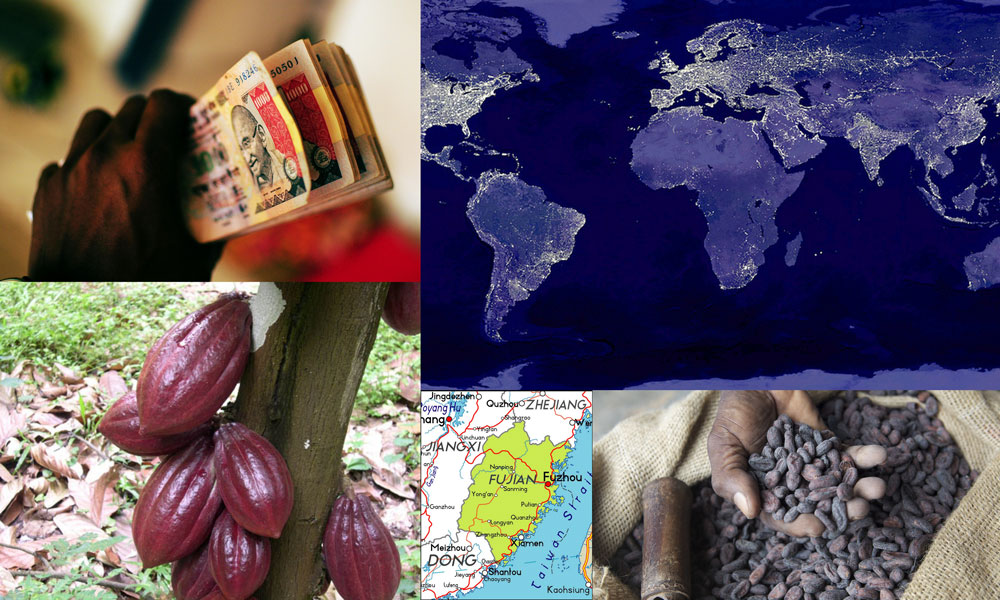Beyond the Nation: Pioneering Studies in How Development Spreads
Is the emphasis on nations as actors in development excessive and obsolete?
Come to DRI's Annual Conference on Friday November 15th! Studies to be presented will show how development spreads with the spread of people, goods, technologies, and ideas across national boundaries. Other talks feature evidence showing a much smaller than expected role for nations and national leaders in explaining development outcomes. It is time for fresh thinking on how development spreads so that it can spread even more.
William Easterly: Why are we So Obsessed with Nations in Economic Development? Most development differences are explained by differences between regions (e.g. Europe vs. Africa, East Asia vs. Latin America) rather than differences between nations. Yet both right and left exaggerate the role of national policy actions in development. Migration of peoples like the emigrants from Fujian Province, China to the rest of East Asia helps explain the success of intra-regional trade, investment, and development in East Asia. The decentralized spread of technologies like mobile phones and even cars has contributed far more to development than national efforts to sponsor politically-fashionable technologies like broadband.
Ross Levine: The Spread of Development through Colonial European Settlement As much as 40 percent of the development that has ever happened outside of Europe is associated with migration and settlement of Europeans during the colonial period in places around the world. What did the settlers bring with them to make this happen?
Emmanuel Akyeampong and Yaw Nyarko: How Indigenous Entrepreneurs Brought Cocoa and Transformed Ghana The spread of development to Ghana was tied to the spread of cocoa. The first cocoa beans were brought into Ghana by a local farmer from Equatorial Guinea around 1878, and within 20 years Ghana was the world’s largest producer. Cocoa has thrived ever since except when punitively taxed. The colonial and post-colonial governments have been less successful actors than indigenous entrepreneurs. For example, in an effort to promote other commodities, the independence-era governments built storage silos all over the country; the silos were successful only as nesting grounds for indigenous snakes.
Jonathan Morduch: Keynote Speech: How Microcredit Went Global One of the most celebrated innovations in development and aid did not happen at the national level. The creation of a global microcredit movement was achieved through transnational networks dedicated to codifying best practices, reforming financial regulations, and building investment funds. The story helps understand the often counter-intuitive role of global public goods in promoting development.
Steven Pennings: Do National Leaders Matter? This paper challenges the conventional wisdom that national leaders like Lee Kuan Yew in Singapore and Park Chung Hee in South Korea deserve credit for the growth miracles that happened on their watch. The evidence speaks surprisingly and strongly: the data are inconsistent with the attribution of growth miracles or disasters to national leaders.
 Photo credits: Gopal Vijayaraghavan, woodleywonderworks, Nestlé, graphi-ogre, IITA Image Library
Photo credits: Gopal Vijayaraghavan, woodleywonderworks, Nestlé, graphi-ogre, IITA Image Library
Conference funding is generously provided by a grant from the John Templeton Foundation.
